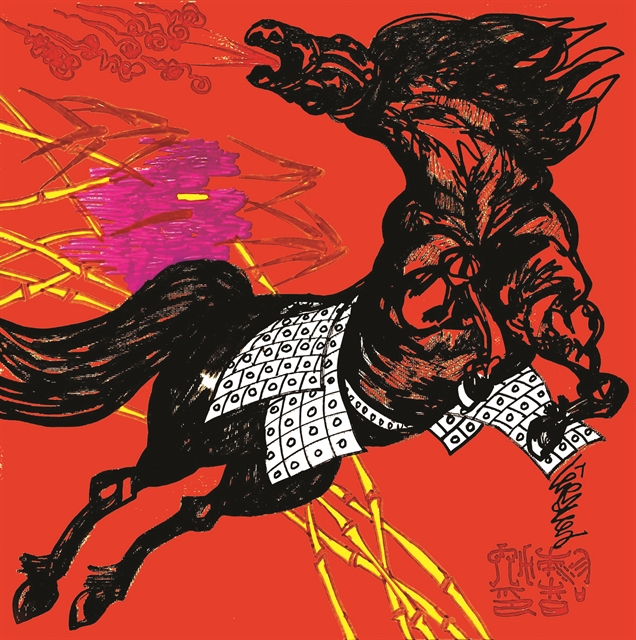 Life & Style
Life & Style

 |
| Whooping coughis a highly contagious and hazardous respiratory disease. Photo shutterstock.com |
Dr. Mattias Larsson & Cynthia S Dacanay
Huyền, a content mother, had given birth to her daughter, Ngọc, who was now three months old. Ngọc was born full-term, weighing 3.5kg, and had no complications apart from some mild jaundice that did not require phototherapy. Ngọc had already received the initial vaccinations for Hepatitis B and BCG (Tuberculosis).
When it came time for the six-in-one vaccination, which included Diphtheria, Tetanus, Pertussis (DTP), Polio, Haemophilus Influenzae, as well as the Pneumococcal vaccine and Rota virus, Ngọc developed a low-grade fever below 38.5°C. Also, Huyền herself had been ill at the time. Due to these circumstances, Huyền made the decision to delay Ngọc's vaccination for the time being.
A few days after attending a family gathering where everyone wanted to greet Ngọc, she began experiencing symptoms including a runny nose, mild cough, and a mild fever. Concerned about her well-being, Huyền took Ngọc to a local doctor who suspected it to be a viral infection but still prescribed amoxicillin antibiotics.
However, despite taking the prescribed medication, Ngọc's symptoms persisted and even worsened after ten days. Her cough became more severe and rapid, accompanied by a distinct "whoop" sound, vomiting, and exhaustion. Ngọc's condition took a concerning turn when she experienced a brief pause in breathing and her lips turned blue, causing her mother to become extremely worried.
Seeking further medical assistance, Huyền took Ngọc to Family Medical Practice, where they met with a pediatrician. Huyền explained the symptoms, duration of illness, and mentioned that Ngọc had not received the DTP (diphtheria, tetanus, and pertussis) vaccination. After examining Ngọc, the pediatrician concluded that it was likely to be a case of whooping cough and initiated treatment with macrolide antibiotics.
Ngọc's PCR test revealed a positive result for pertussis, commonly known as whooping cough, which is a highly contagious and hazardous respiratory disease. It typically affects around 80-90 per cent of individuals who are exposed to it and have not been vaccinated. The disease can be transmitted through coughing and sneezing, so it is crucial to avoid close contact until at least five days of treatment have been completed.
The doctor further explained that pertussis is caused by a bacteria known as bordetella pertussis and can be prevented through vaccination. Antibiotics are the recommended treatment, although the previously administered ones may not be effective. Administering antibiotics early in the course of the infection can potentially reduce the duration of symptoms and lower the risk of transmission.
The paediatrician, actively involved in pertussis research, provided insights from their work at the Vietnam National Children's Hospital. Over the course of three years (2015-2018), the hospital encountered over 1,000 laboratory-confirmed cases of pertussis. Among these cases, 40 per cent affected infants under two months of age, and 23 per cent experienced severe symptoms.
Infants are particularly prone to complications such as pneumonia, convulsions, and hypotension. The incidence of pertussis varied across seasons, with the highest number of cases occurring in the summer. However, the winter season witnessed a higher proportion of severe cases and fatalities.
Comparing non-vaccinated children to those who received the DPT (diphtheria, pertussis, and tetanus) vaccine, the study revealed significant differences. Non-vaccinated children exhibited more severe symptoms, required hospitalisation for a longer duration and substantially higher medical costs. In contrast, DPT vaccination provided protection against pertussis infection and, in the event of an infection, reduced the severity of symptoms.
The doctor stressed the significance of vaccination in preventing Pertussis and other childhood diseases. It was emphasised that individuals of all age groups, including infants as young as six weeks old, pre-teens, and adults, should receive the Pertussis vaccine. Pregnant women, in particular, were highlighted as a group that should prioritise vaccination. Studies have shown that the protective effects of immunisation diminish over time, typically lasting between four to 12 years.
The doctor also explained that pregnant women who receive the Pertussis vaccine can provide protection to their newborns. This occurs through the transfer of antibodies from the mother to the baby via the blood exchange in the placenta and through breastfeeding. Huyền expressed her regret, stating that if she had been aware of this information earlier, she would have chosen to get vaccinated for Pertussis during her pregnancy. Family Medical Practice
Visit Family Medical Practice Hanoi 24/7 at 298I Kim Mã Street, Ba Đình District.
To book an appointment, please call us at (024).3843.0784 or via Whatsapp, Viber or Zalo on +84.944.43.1919 or email hanoi@vietnammedicalpractice.com.
FMP’s downtown location in Hồ Chí Minh City is in Diamond Plaza, 34 Lê Duẩn Street, Bến Nghé Ward, District 1, and 95 Thảo Điền Street, District 2. Tel. (028) 3822 7848 or email hcmc@vietnammedicalpractice.com.